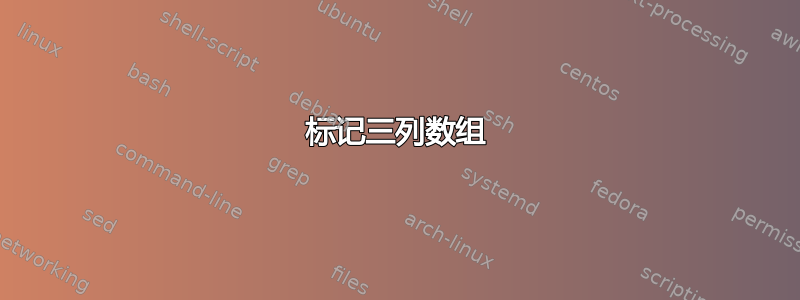
我得到了这个代码:
$$\begin{array}{lcr}
a_{11}\cdot x_1+a_{12}\cdot x_2 &+ … + &a_{1n}\cdot x_n=\alpha_1 \\
a_{21}\cdot x_1+a_{22}\cdot x_2 &+…+&a_{2n}\cdot x_n=\alpha_2 \\
&\vdots & \\
a_{m1}\cdot x_1+a_{m2}\cdot x_2 &+…+&a_{mn}\cdot\ x_n=\alpha_m
\end{array}$$
我想在外面右边放置一个标签,给出以下 PDF 输出:
Eq = my number
Eq2 = umber (2.2)
Eq3 = two xer
我该如何实现这一点?重要的是第一列左对齐,中间列居中,第三列右对齐。
答案1
以下是一个普通的equation,允许标记:

\documentclass{article}
\begin{document}
Here is some text.
\begin{equation}
\begin{array}{l@{}c@{}r}
a_{11}\cdot x_1+a_{12}\cdot x_2 + \cdots + a_{1n}\cdot x_n & {}={} & \alpha_1 \\
a_{21}\cdot x_1+a_{22}\cdot x_2 + \cdots + a_{2n}\cdot x_n & {}={} & \alpha_2 \\
& \vdots & \\
a_{m1}\cdot x_1+a_{m2}\cdot x_2 + \cdots + a_{mn}\cdot x_n & {}={} & \alpha_m
\end{array} \label{myeqns}
\end{equation}
Here is some more text. See~(\ref{myeqns}).
\end{document}
列规范l@{}c@{}r确保了l左、c中、r右对齐,但也消除了 -column 周围的任何列间空间c。但是,使用{}={}可以纠正 周围的间距=。
看为什么\[ … \]优于$$?和\(和是否\)比 更可取$?有关使用 LaTeX 样式数学分隔符(避免$$)的更多信息,除非您使用纯 TeX(这会使这个答案毫无用处)。
答案2
使用\begin{equation}和\end{equation}而不是普通的 TeX 样式$$。
对于不需要编号的方程式,可以使用\[和\],或者,如果amsmath 包加载,\begin{equation*}你\end{equation*}可能会找到答案为什么 [...] 比 $$ 更可取?有用。


